When it is time to spar there are rules and points of etiquette that need to be followed in order to get the most out of your sparring sessions. Sparring is undoubtedly one of the best tools for honing skills and developing techniques, and for beginners, it is the best way to prepare for actual bouts in the ring.
Let’s take a look at these 11 important points of etiquette for Muay Thai sparring that you need to know.
1) Respect For Sparring Partners And Trainers
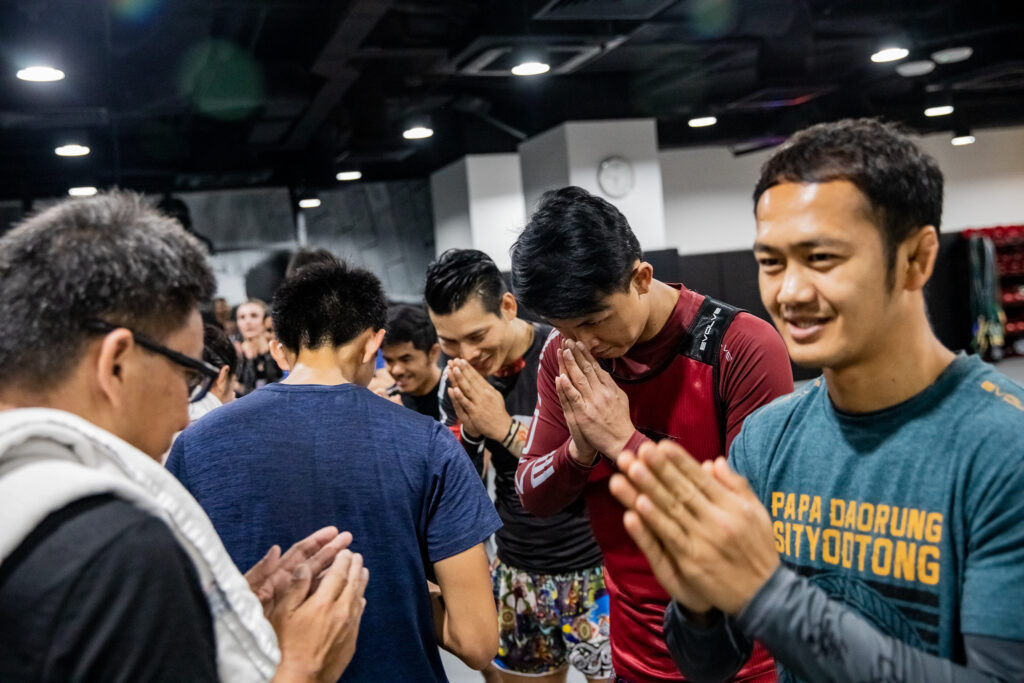 Greetings and acknowledgement are signs of respect taught from the very beginning in all martial arts, and Muay Thai is no different. Before and after sparring rounds there are ways to show respect. Touching gloves is the way in most combat sports to show respect before a fight, and should also be used before sparring.
Greetings and acknowledgement are signs of respect taught from the very beginning in all martial arts, and Muay Thai is no different. Before and after sparring rounds there are ways to show respect. Touching gloves is the way in most combat sports to show respect before a fight, and should also be used before sparring.
After sparring, the use of the wai is used. In Thailand, this hand gesture accompanied by a slight bow is a high form of respect. The palms come together in a prayer-like gesture showing respect. This gesture originates from India where it is known as the Añjali Mudrā, which is used in Buddhism and Hinduism.
Respect for your trainers should be a given, as they are there to teach you and help you to attain a higher level of proficiency and to guide you.
2) Safety Gear
Proper safety gear is always a good idea when used properly during sparring sessions.
The proper safety gear consists of:
- Mouthpiece
- Shin Guards
- Groin Protection
- Head Gear (optional)
3) Use Big Gloves
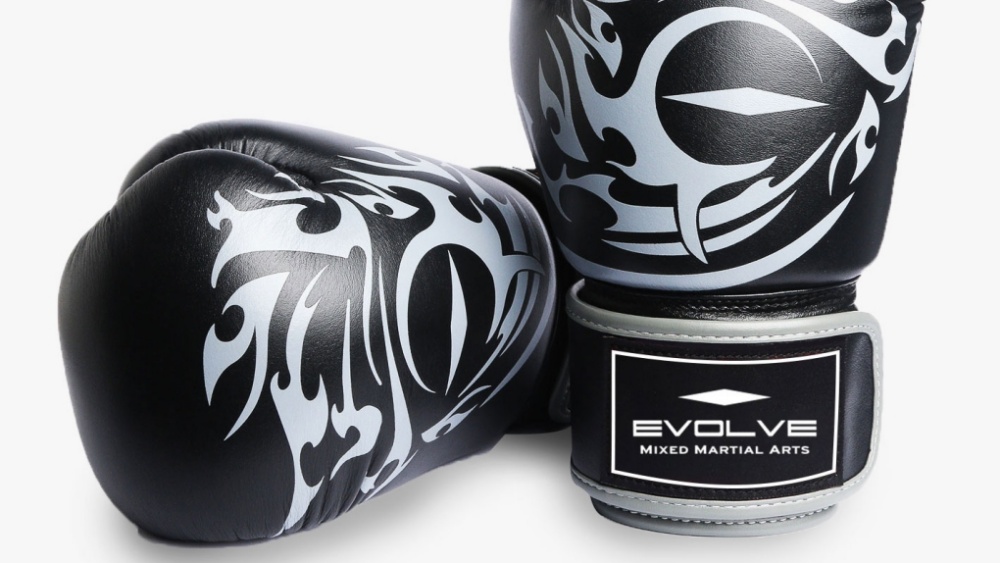 Although using big gloves could fall under the safety gear section, it needs to be emphasized in a way that shows the importance of using bigger gloves when sparring in Muay Thai. The last thing you want to do is spar with 4-oz gloves like the ones used in actual fights.
Although using big gloves could fall under the safety gear section, it needs to be emphasized in a way that shows the importance of using bigger gloves when sparring in Muay Thai. The last thing you want to do is spar with 4-oz gloves like the ones used in actual fights.
This is one time when bigger is better, so use 14 or 16-oz gloves for sparring. It not only protects you and your sparring partner but it will feel like you are bare-knuckled when you put on the smaller gloves when it’s time to fight.
4) Communication
The impact of proper communication cannot be underestimated. Communicate with your sparring partner to make sure that they know if you have limitations, or if there are certain things you would like to train. Take a moment to do this before sparring. Communication before, during, and after yields the highest results from your sparring sessions.
5) Control Your Power
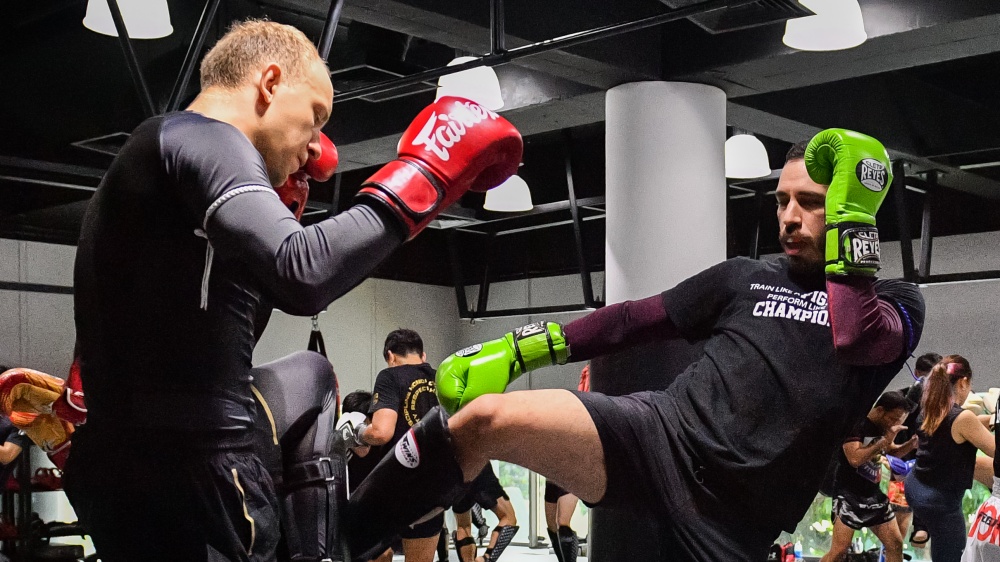 Controlling your power means that you are sparring intelligently and are working to learn and improve your techniques. You don’t want to damage your training partner with your most powerful punches and kicks.
Controlling your power means that you are sparring intelligently and are working to learn and improve your techniques. You don’t want to damage your training partner with your most powerful punches and kicks.
6) Don’t Go For Knockouts
Falling in line with power control is one that seems to be overlooked sometimes with beginners, and that is, don’t go for knockouts. This is not a fight that needs to be won, so trying to take the head off of your partner is not necessary and just shows a lack of control.
7) Keep Your Ego in Check
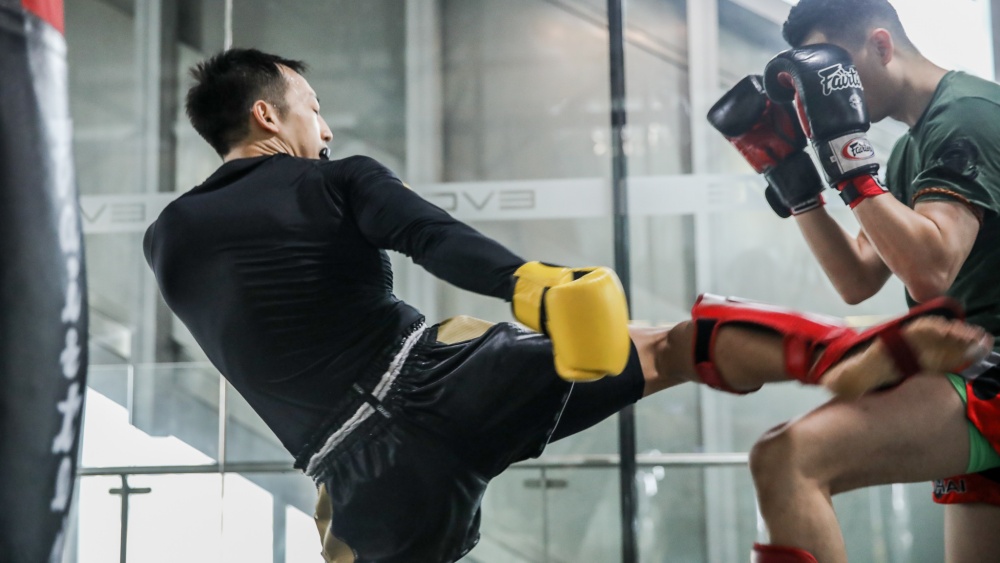 Put your ego at the door. You are sparring to learn, to develop technique, and to find places in your fight game that might need work. You want to use your sparring sessions to improve your overall performance when it’s time to crawl into the ring.
Put your ego at the door. You are sparring to learn, to develop technique, and to find places in your fight game that might need work. You want to use your sparring sessions to improve your overall performance when it’s time to crawl into the ring.
8) No Elbows
Elbow strikes are one of the most devastating and dangerous strikes in Muay Thai, and not using them in sparring is plain common sense. The bottom line is that throwing elbows would certainly injure your partner and should be avoided during sparring sessions.
9) Adjust To Partner’s Skill Level
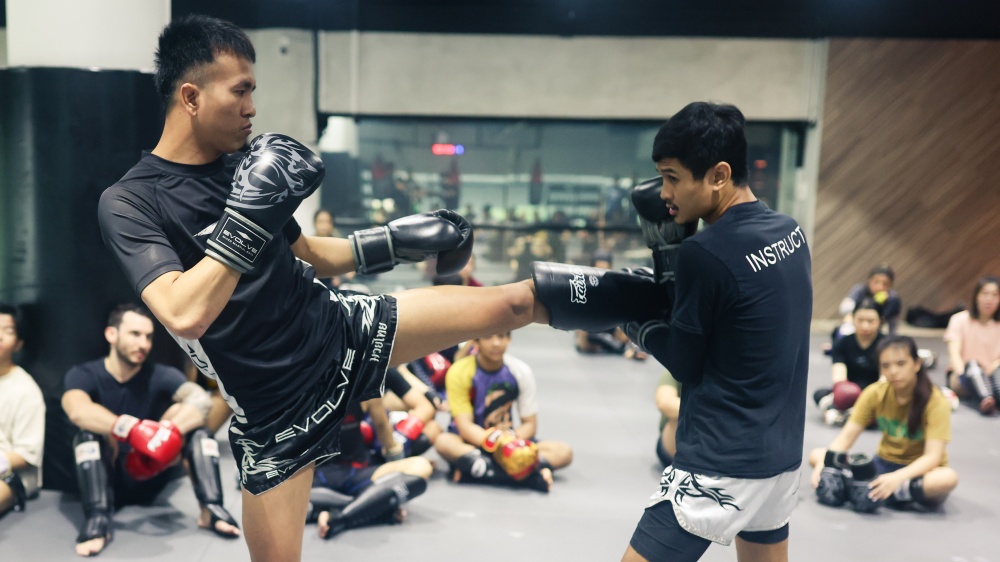 You’re not always going to be sparring with someone who is as skilled as you are, so adjusting the level of sparring to your sparring partner is necessary in order to help them learn and develop the skills they need to become better Muay Thai fighters.
You’re not always going to be sparring with someone who is as skilled as you are, so adjusting the level of sparring to your sparring partner is necessary in order to help them learn and develop the skills they need to become better Muay Thai fighters.
10) Safety Precautions
While sparring, it’s essential to prioritize safety to prevent potential harm. Be proactive in addressing any situations that may arise to safeguard your well-being and ensure longevity in your Muay Thai journey.
11) Hygiene
On a more personal level, proper hygiene is one of the nicest things you can do before a sparring session. Nobody wants to train with someone who doesn’t use proper hygiene.
Trim your toenails, shower, and wash your gear occasionally, it benefits everyone.
Conclusion
Respect is a fundamental and ingrained principle in the world of Muay Thai, and it permeates every aspect of this martial art. Nowhere is this respect more apparent than in the practice of sparring. Sparring is not just about testing your skills and physical abilities; it’s also a lesson in humility, discipline, and camaraderie. Whether you are a seasoned fighter or a beginner, there are essential etiquettes to uphold during sparring sessions that can help you grow as a martial artist and as a person.
Safety should always be your top priority. Ensure that both you and your partner are adequately protected with the necessary gear – gloves, mouthguards, shin guards, and other protective equipment – to minimize the risk of injuries. Properly warming up before a sparring session is also crucial to prepare your body and mind for the physical demands of training.
Before you begin sparring, communicate openly with your partner. Discuss your goals for the session, any specific techniques you want to work on, and the level of intensity you are comfortable with. This ensures that both you and your partner are on the same page and can have a productive training session.
At the end of the day, sparring is one of the most valuable tools in a fighter’s quest to grow and learn, but remember it can be fun as well. The etiquette of sparring applies to the seasoned as well as the beginner. Follow these twelve points of etiquette and use your sparring sessions to transform yourself as well as your Muay Thai and evolve into the best fighter you possibly can be.
You may also like:
















